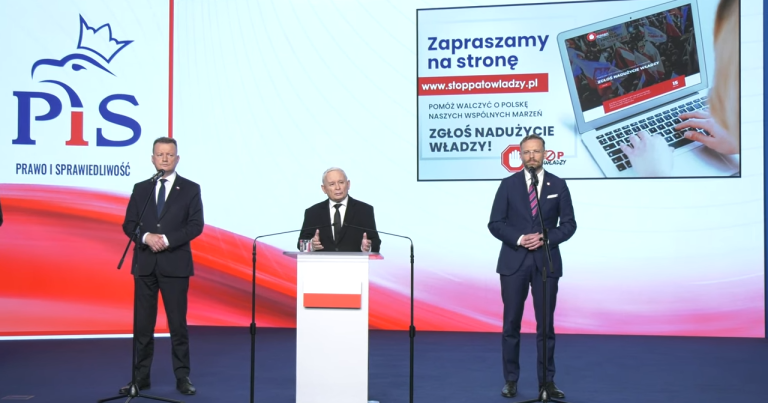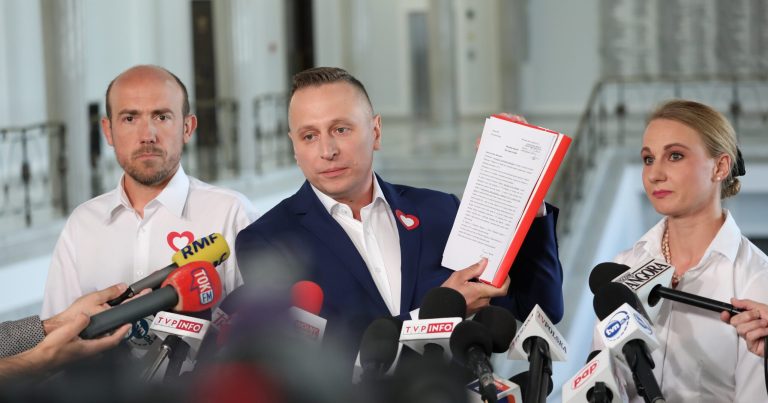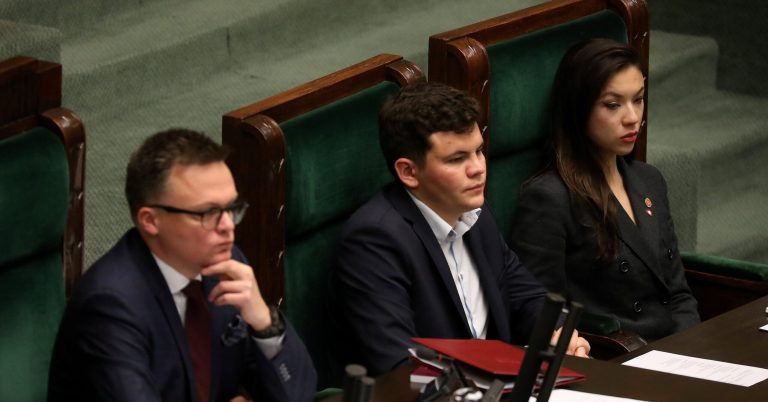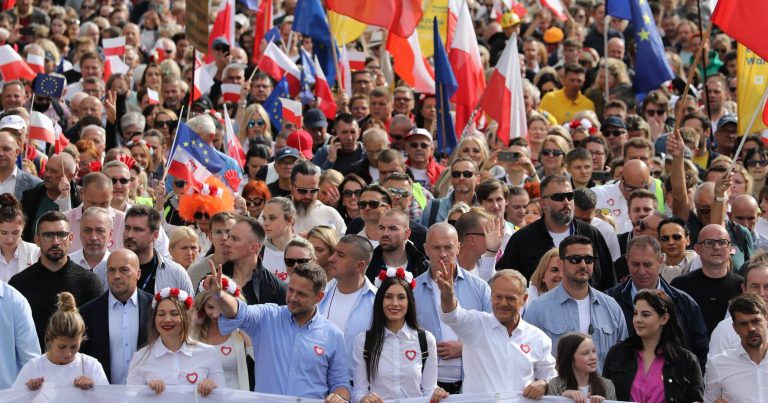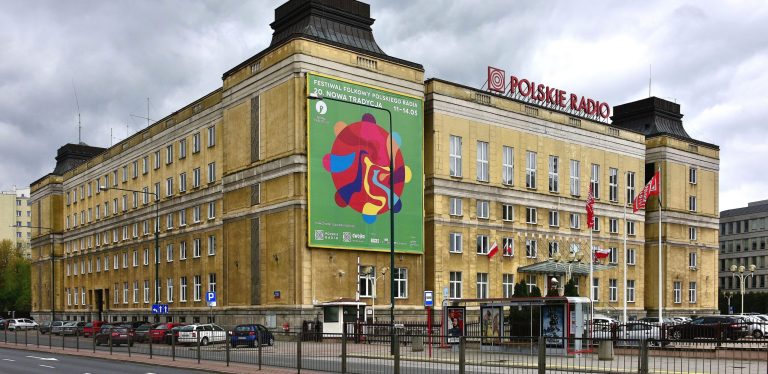Polish ruling party pledges billions to improve communist-era housing estates
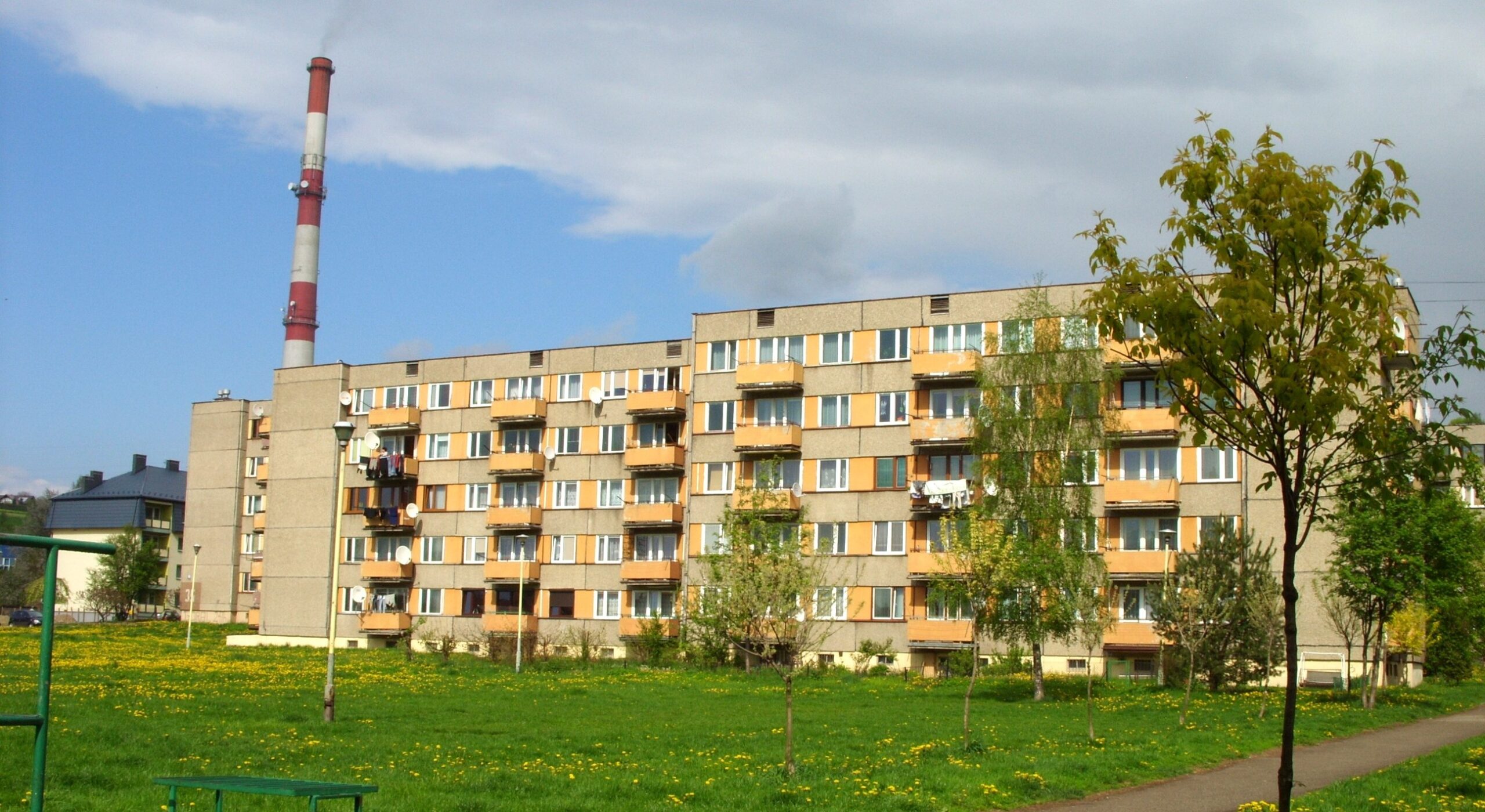
Poland’s ruling party has pledged 5 billion zloty (€1.1 billion) of investment a year to improve communist-era apartment blocks and their surroundings. The plans include installing modern lifts, solar panels and better insulation, as well as creating parks and playgrounds.
Over eight million Poles live in so-called “large panel” (wielka płyta) buildings, which are constructed from prefabricated concrete slabs. The system was widely used in Poland from the 1960s to the early 1990s, and many such housing estates now show signs of their age.
Residents, activists and architects are finding ways to treat three „diseases” that blight Poland’s cities: „concretitis”, „advertitis” and „pastelitis”.
Little by little, they are healing an urban landscape scarred by history, writes @AlicjaPtak4 https://t.co/IltIpemG3o
— Notes from Poland 🇵🇱 (@notesfrompoland) August 1, 2022
To address this, the national-conservative Law and Justice (PiS) party – which is seeking an unprecedented third term in October’s parliamentary elections – today announced a new programme titled “Przyjazne osiedle”, which translates roughly as “Resident-friendly Estate”.
“All of Poland should be welcoming for people. We don’t want better and worse districts,” said PiS Prime Minister Mateusz Morawiecki. “We want residents of these estates to have the best standard of life.”
The programme will see thousands of such apartment blocks revitalised in “all towns and large cities in Poland”, said Morawiecki, who pledged “billions of zloty from government funds”.
Rozpoczynamy dziś ofensywę programową, czyli przedstawianie nowych konkretów na kolejną kadencję.
1⃣ konkret PiS: wielki program „Przyjazne Osiedle” – modernizacja i rewitalizacja osiedli oraz bloków z tzw. wielkiej płyty 👇#KonkretyPiS pic.twitter.com/xo9Ss3KN6r
— Prawo i Sprawiedliwość (@pisorgpl) September 4, 2023
The funding will be used to improve energy efficiency, including through better insulation and the installation of solar panels. Last year, the government noted that around 70% of buildings in Poland do not meet energy efficiency standards.
The programme will also create garages and parking spaces (though with the promise that green areas will not be removed to make way for them), create playgrounds and parks, and improve roads and lifts.
Morawiecki noted that elderly people are particularly likely to live in such estates – he claimed that in fact a majority of seniors do – and it is especially important for them to have properly functioning lifts.
Renewable energy micro-installations contributed over twice as much power to Poland’s electricity network last year as in 2021.
The majority of that came from home solar installations, which have boomed thanks to a state subsidy schemehttps://t.co/1ZRcy65gyZ
— Notes from Poland 🇵🇱 (@notesfrompoland) March 21, 2023
PiS’s unveiling of the “Resident-friendly Estate” programme today marked the first of what it promises will be daily new policy announcements this week as it campaigns for October’s elections.
However, financial news website Bankier.pl notes that much of what the ruling party today promised either already exists – for example, under the state Thermomodernisation and Renovation Fund, which has been running for over 20 years – or is something Poland is required to do under an EU energy efficiency directive.
Morawiecki acknowledged today that some of the costs of the programme will be met through EU funds, but he added that money from the national government and local authorities would also be used.
“We are planning at least 5 billion zloty a year for this programme,” said the prime minister. “This will be the case in the first year, but we want to develop this programme.”
Notes from Poland is run by a small editorial team and published by an independent, non-profit foundation that is funded through donations from our readers. We cannot do what we do without your support.
Main image credit: Adam Midor/Wikimedia Commons (under CC BY-SA 4.0)

Daniel Tilles is editor-in-chief of Notes from Poland. He has written on Polish affairs for a wide range of publications, including Foreign Policy, POLITICO Europe, EUobserver and Dziennik Gazeta Prawna.

